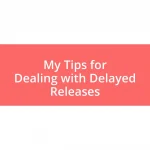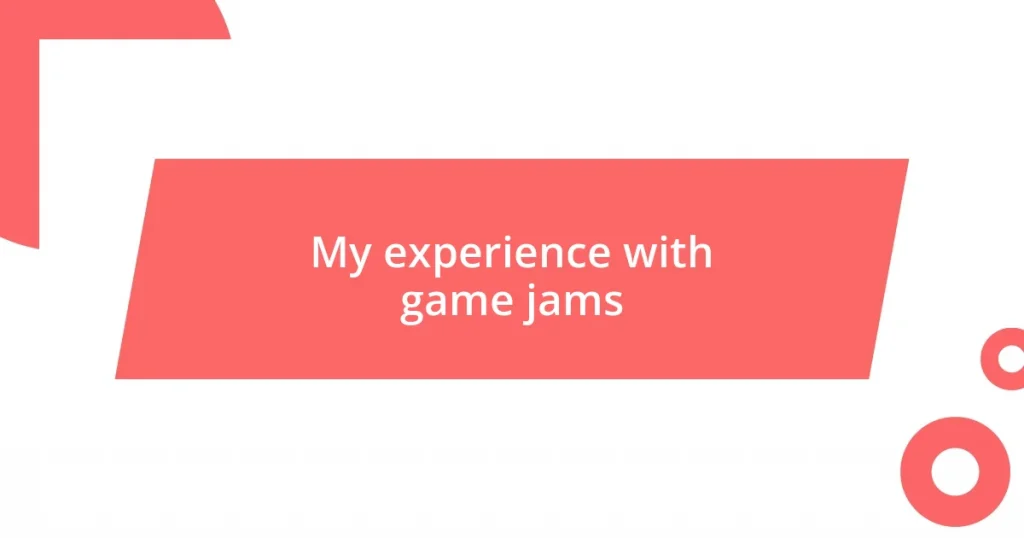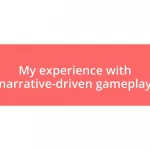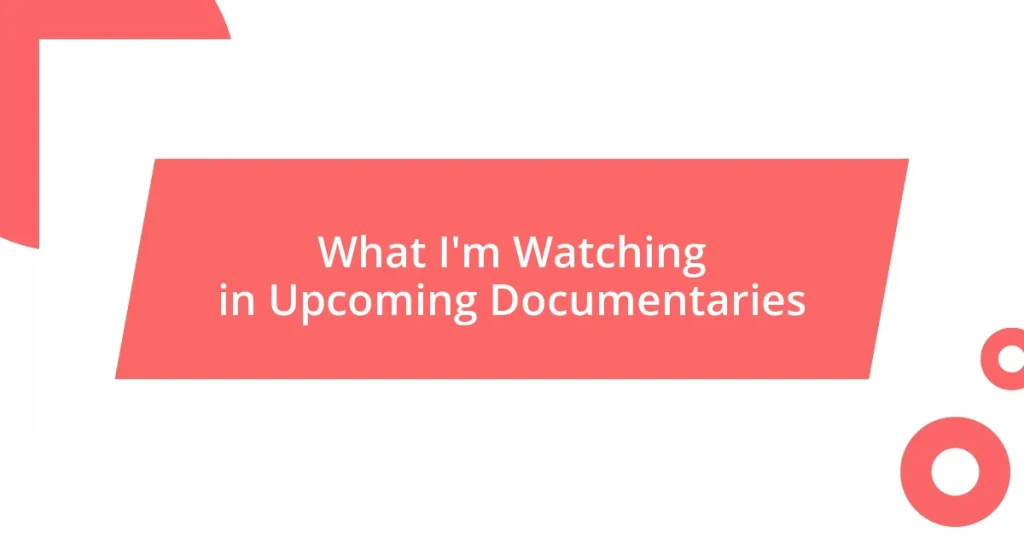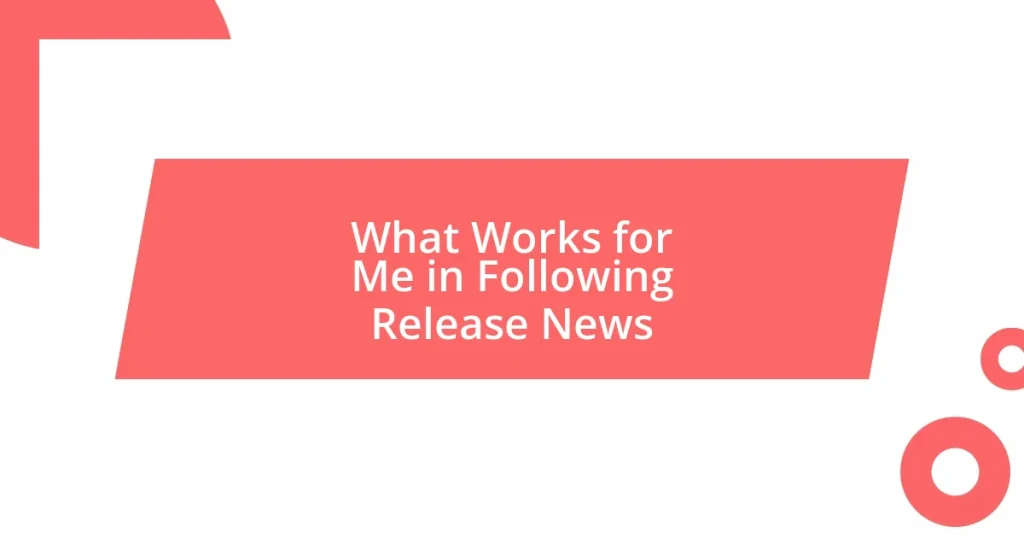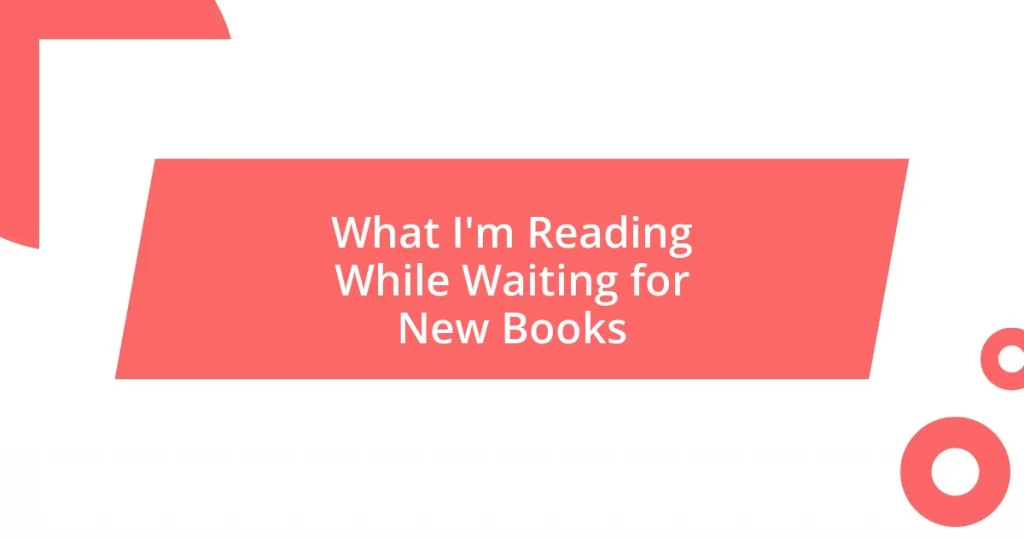Key takeaways:
- Game jams foster creativity and collaboration, allowing participants to rapidly transform ideas into playable games while building connections.
- Choosing the right game jam is crucial; consider factors like theme, duration, location, community, and personal goals to enhance your experience.
- Effective teamwork relies on clear roles, open communication, flexibility in concepts, and celebrating small victories to maintain motivation and morale.
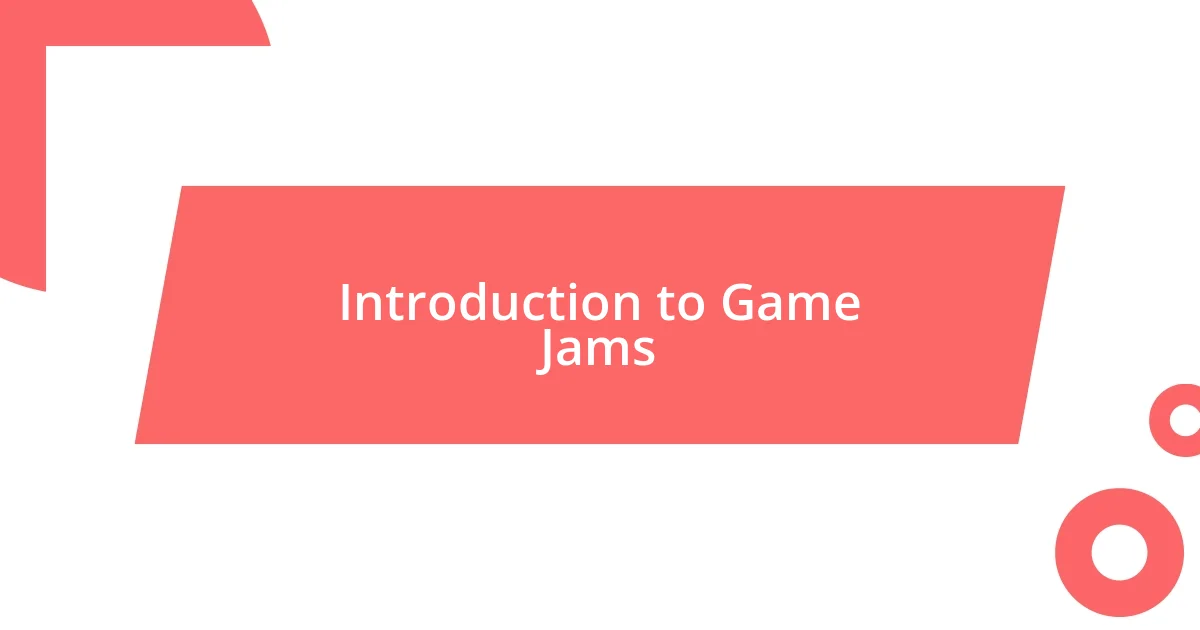
Introduction to Game Jams
Game jams are exhilarating events where developers, artists, and enthusiasts come together to create games in a short timeframe, typically 24 to 48 hours. I remember my first jam vividly; the energy in the room was contagious. Everyone was brainstorming ideas, racing against the clock, and the thrill of collaboration was palpable.
Participating in a game jam can feel like stepping into a whirlwind of creativity and camaraderie. Each team member brings their unique skills, and you quickly realize how different backgrounds can spark innovative ideas. Have you ever wondered how quickly you can go from concept to playable game? In a game jam, you get to experience that rush firsthand, and it’s nothing short of electrifying.
As the hours tick by, the pressure mounts, but so does the excitement. There’s something magical about turning a rough idea into a game that you can share with others. I still think about the exhilarating moment when our team played our game for the first time; it was a blend of anxiety and joy that made every moment worth it. Game jams aren’t just about making games; they’re about forging connections and pushing creative boundaries.
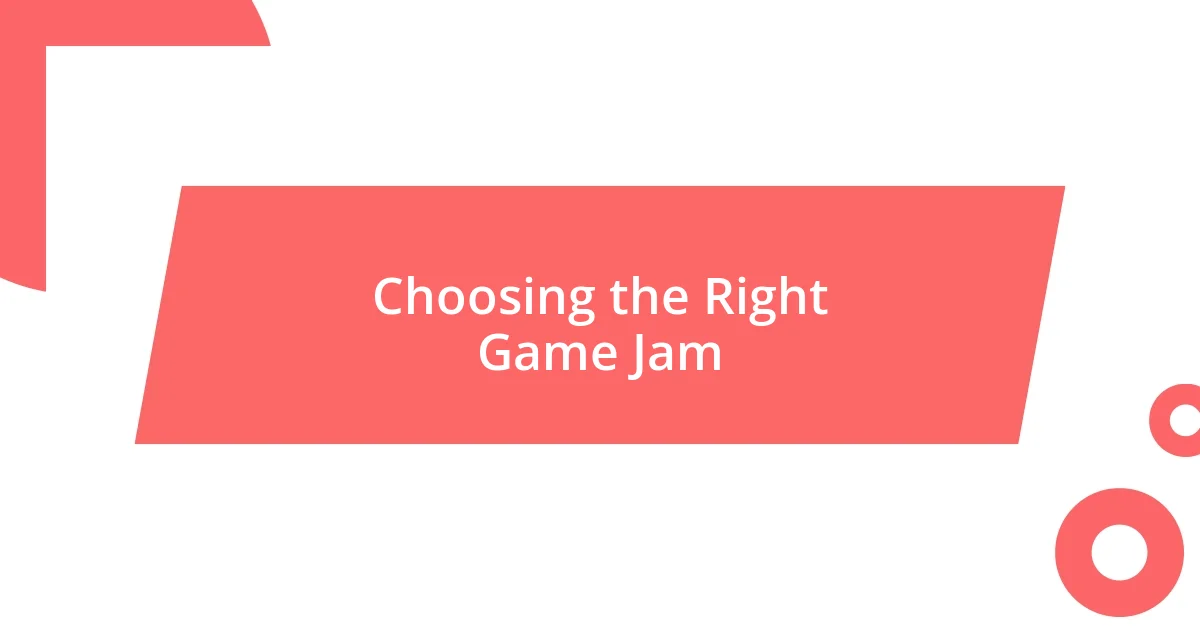
Choosing the Right Game Jam
Choosing the right game jam can make all the difference in your experience. Based on my participation in several different jams, I’ve learned that not all jams are created equal. Some focus on specific themes, like environmental issues or much-loved classics, while others might allow for more creative freedom. I vividly remember joining a jam centered around horror games; the adrenaline rush of crafting something engagingly eerie in such a short time was unforgettable.
Here are a few factors to consider when selecting a game jam:
– Theme: Does it resonate with your interests, or will it challenge you in new ways?
– Duration: Are you ready for a quick 24-hour event, or would you prefer a longer jam to develop your ideas more fully?
– Location: Is it physical or virtual? Some of my best connections came from local jams where face-to-face collaboration sparked intense creativity.
– Community: Are there forums or groups associated with the jam? Engaging with others before and after can enhance your experience.
– Personal Goals: What do you hope to achieve? Whether it’s learning a new skill or simply having fun, clarity on your goals can guide your choice.
Taking the time to reflect on these aspects will help ensure your game jam experience is not only rewarding but also aligned with what you’re looking to get out of it.
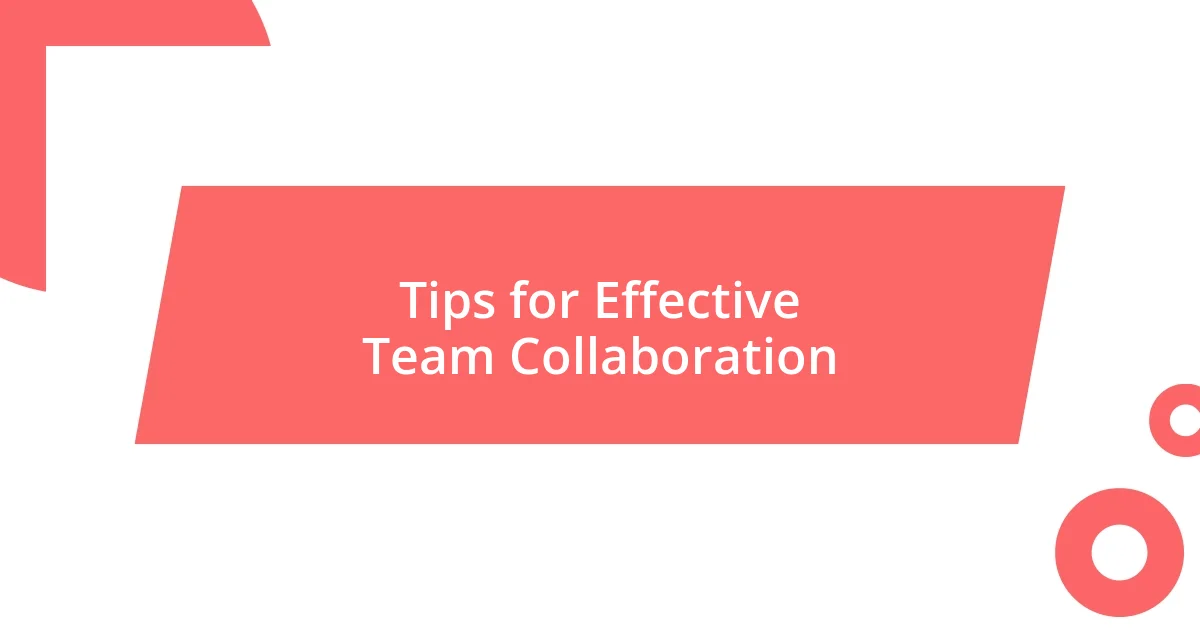
Tips for Effective Team Collaboration
Collaboration during a game jam can be exhilarating, but it often requires a keen understanding of team dynamics. From my experience, establishing clear roles at the beginning fosters accountability and allows everyone to play to their strengths. I once had a role where I was the designated problem-solver; knowing that I was responsible for addressing challenges helped me focus my energy and made our workflow smoother.
Communication is vital when working in a fast-paced environment like a game jam. I recall a time when my team struggled because we didn’t share updates regularly. This oversight slowed our progress and led to confusion. Scheduling brief check-ins every few hours helped keep everyone aligned and motivated. This simple step ensured that each team member felt heard and valued, boosting morale significantly.
Finally, embracing flexibility can elevate your team’s synergy. During one of my recent jams, our original game concept didn’t resonate with everyone. Instead of sticking rigidly to our first idea, we decided to pivot and explore a new direction. This adaptability not only opened up fresh creative avenues but also strengthened our connection as a team. Remember, the process can be just as rewarding as the end product!
| Tip | Description |
|---|---|
| Establish Clear Roles | Assign specific responsibilities based on each member’s strengths to enhance accountability and efficiency. |
| Maintain Open Communication | Schedule regular check-ins to share progress and address challenges to keep the team aligned and motivated. |
| Be Flexible | Stay open to changing your game concept based on team feedback and needs to enhance creativity and collaboration. |
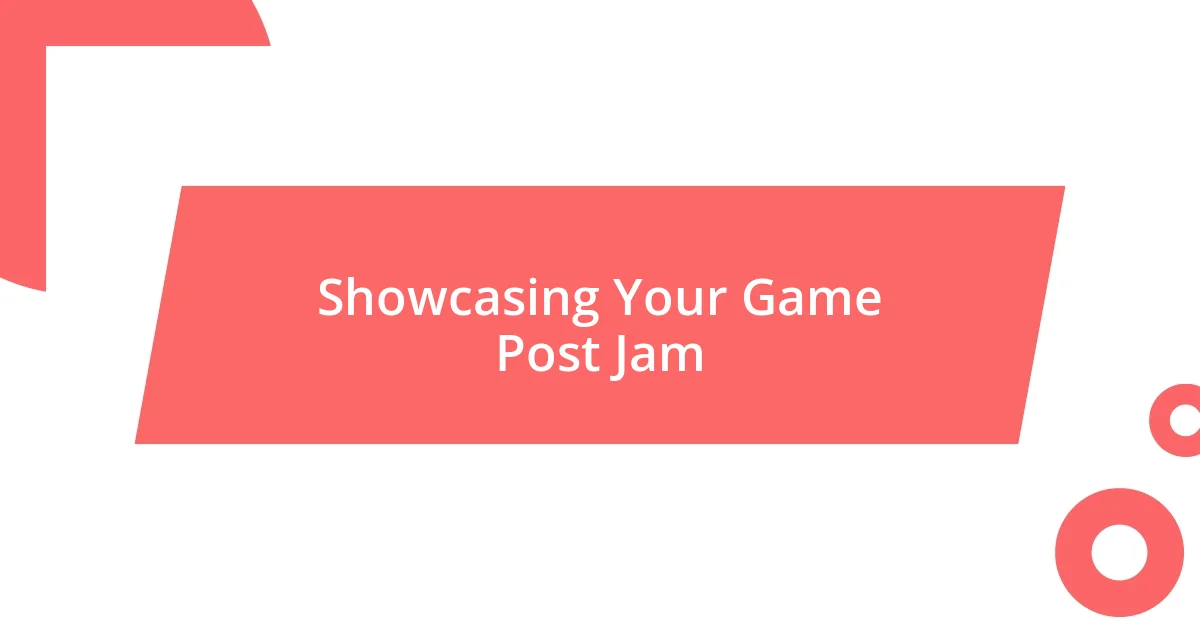
Showcasing Your Game Post Jam
After the adrenaline of the game jam fades, showcasing your game becomes an exciting next step. I remember the first time I presented my jam game online; the thrill of seeing people play and react to something I created was incredible! I wanted to share my passion and encourage constructive feedback, but how do you make sure your game stands out in a sea of projects?
Effective promotion can be as important as development. I found that using social media platforms to share gameplay clips or interesting development stories helped draw attention to my game. It’s like throwing a small lure into a big ocean; the more engaging your bait, the bigger the catch. Have you considered creating a trailer that captures your game’s essence? I learned that a captivating visual teaser can spark curiosity and intrigue potential players.
Don’t underestimate the power of community engagement either. After my last game jam, I dedicated time to mingle in online forums and social media groups related to the jam. Sharing my journey and inviting others to play not only expanded my audience but also fostered invaluable connections. Did you know that networking can lead to future collaborations? It’s one of the most rewarding aspects of this creative process, keeping me motivated to join more jams!
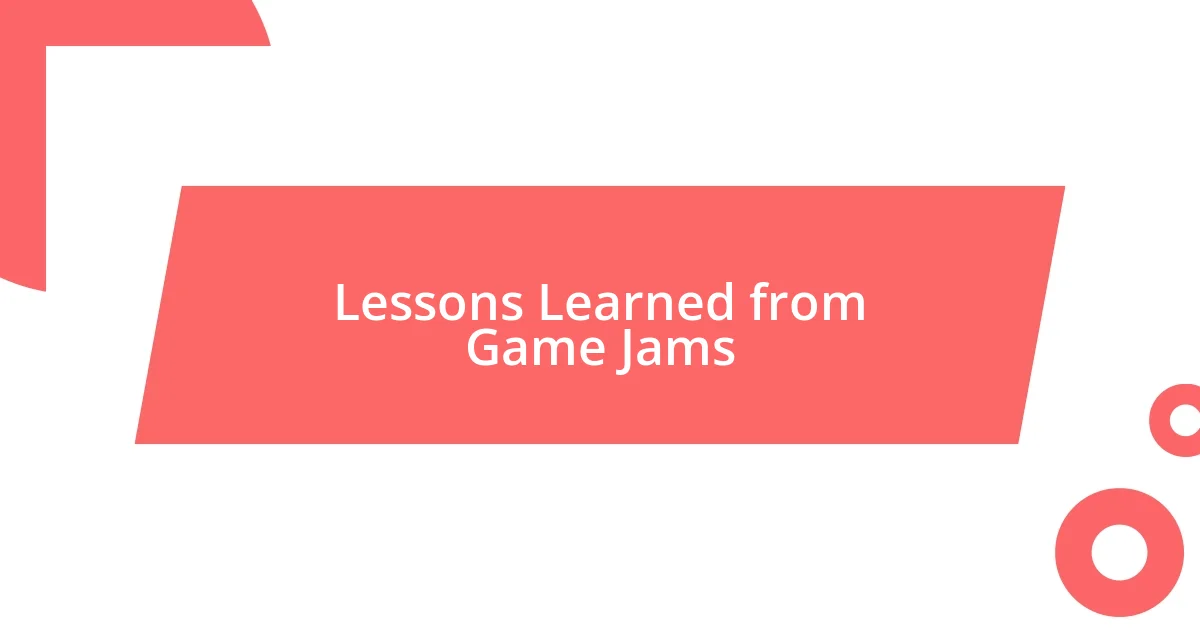
Lessons Learned from Game Jams
Participating in game jams has taught me the importance of time management. I remember a time when I ambitiously added features right up until the deadline, thinking it would elevate our game. Instead, we ended up with a half-finished product that didn’t showcase our original vision. That moment underscored the need to prioritize key elements and stick to a timeline, a lesson that’s been invaluable in future projects.
Another significant lesson learned is the value of feedback during development. One jam, we were so focused on our game that we neglected to gather input from others. When we finally shared our progress, the feedback we received was eye-opening. It revealed gaps we didn’t notice ourselves, illuminating paths for improvement. I’ve come to appreciate how outside perspectives can enhance creativity and refine gameplay.
Finally, I’ve discovered the importance of celebrating small victories. During one of my recent jams, my team struggled with a tricky coding issue. When we finally cracked it, we took a moment to acknowledge our success, shifting the team’s energy and boosting morale. Each small win adds up, making the intense pressure of a jam feel more manageable and enjoyable. How do you celebrate your achievements in collaborative projects? Reflecting on this can help fuel motivation and foster a positive atmosphere.






